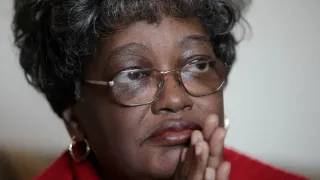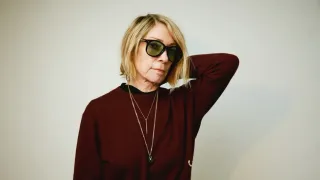February 22, 2022
Outside the Rainbow: Black Lesbian Couple's Memoir
Cornelius Washington READ TIME: 4 MIN.
At first, from reading scattered passages, I thought that Naomi W. Scales and Marilyn J. Jordan's book, From Pain To Love: Our Journey Outside The Rainbow, would be about two very beautiful African-American women of a certain age, triumphing against all odds and, yes, on every level, there was plenty to overcome. This book is very timely, reflecting just about everything that is pathological about the African-American community.
There have been very serious and painful dialogues regarding relations between the genders, and the discussion and the dissection of African-American women's hopes, dreams, aspirations and affirmations (such as "Black Girls Rock!").
Also being examined is the twisted unwillingness to listen to or comprehend critique and serious inspection, particularly by African-American males ("You hate Black women." "Your mother's Black." "Who hurt you? and/or "You must be gay.").
Scales and Jordan's book is a very penetrating look at just about everything currently being fought over in the media that concerns Black people. Themes and topics take on lies, morals, deceit, envy, poverty, racism (from within and without), homophobia (same), misogyny and misandry (irrational fear and hatred of men and boys, in this case, Black males.).
Tyler Perry and Lee Daniels would foam at the mouth to bring this book to life. Through their plays, movies and television programs, they use Black dysfunction as entertainment and "inspiration", usually devoured by its core audience: Black women.
A tale of true ambivalence and psyche-scarring chaos that is unrelenting, yet framed within the book as romantic and vilified within Black culture as "struggle love." It's like The Color Purple and Waiting To Exhale, complete with an ambisexual/lesbian subtext made text and fodder for Oprah Winfrey.
Within the book, Black men are described as brutish, frightening, molesting, evil, violent, suspicious and menacing, which is sometimes true within the book's context. Meanwhile, they are also seen as lesser creatures, lacking in autonomy and basic humanity. They are to be fought, manipulated, emasculated, used as utilities and studs, all simultaneously, quickly to be discarded and forgotten, resulting in a unhappy, adulterous marriage to Marilyn, who bore two children, while Noami describes undergoing an abortion with a boyfriend.
The women are a case study for "opposites attract," due to their very deep aspiration about and within someone, and a longing for a fugitive expression from within the other that has an excellent potential for either beauty or ruin. There are intense trials and tribulations, their love being repeatedly tested, usually through some fault of their own, such as refusing to come out of the closet.
They frame themselves as being very passionate, but at every turn there is a constant insecurity regarding their fidelity, with one woman exploring her options outside of the relationship and, yes, it's the woman who's constantly accusing the other of wanting to begin a relationship with a man.
The book becomes truly moving and read-worthy only when the two authors describe their loving treatment of Naomi's combative, argumentative, and terminally ill single mother. Everything else in the book is like watching any reality show wherein the Black women are concerned only about their emotions, goals, fears, and weaknesses, rarely, if ever, addressing the autonomy of others.
If you truly want to read about authentic Black lesbian drama that goes so far beyond the rainbow to enforce the trite stereotypes, this is the book for you.
None of the great civil rights leaders whom we celebrate this month suffered and died in order for Black people – not even Black lesbians – to live their lives with such shame, hiding and stigma. The rainbow also includes the color Black, and we must celebrate all of the diversity within it. Self-respect is key. Self-hate, loathing, and defeatist attitudes must be overcome with dynamic authenticity and good, though not perfect, representation.
In the 21st century, organic positivity must be celebrated, so that Black truly is beautiful. Live and be your truth.
naomiwscalesandmarilynjjordan.com
Help keep the Bay Area Reporter going in these tough times. To support local, independent, LGBTQ journalism, consider becoming a BAR member.






